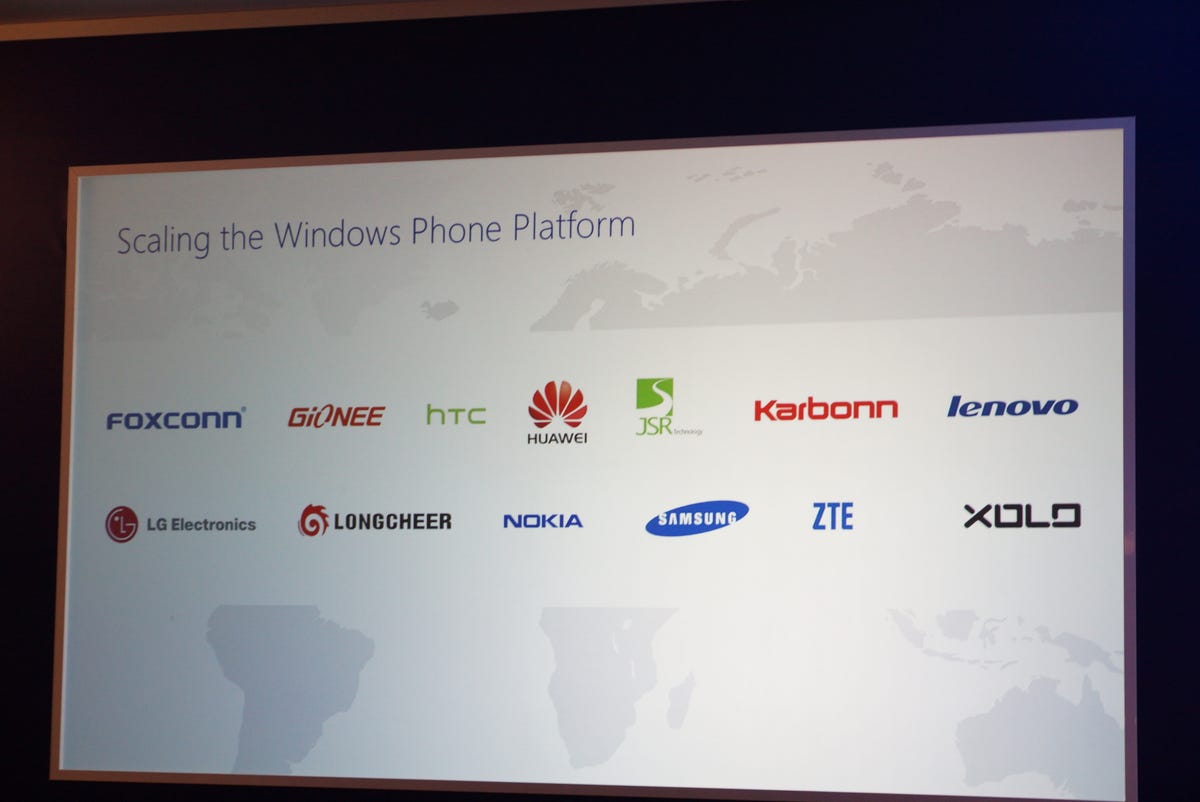Microsoft wants Windows Phone to go global in an even bigger way.
The company spilled a few of the details from its upcoming update to Windows Phone, which will be released later this year. With the update, Microsoft is loosening the restrictions for devices, allowing manufacturers to create more affordable products for the emerging markets.
Microsoft also announced a number of new partners who will be supporting Windows Phone, including high-profile names such as LG, Lenovo, and Foxconn.
The update underscores Microsoft’s attempt to go after the emerging market, the fastest growing area in the industry. Even as the high-profile devices are beginning to see their growth ebb, there remains an untapped market for getting consumers to upgrade to their first, low-cost smartphone.
Windows Phone has already seen success in the area. Africa and Middle East saw their sales grow by 758 percent, while Latin America grew by 148 percent, and Asia Pacific grew by 105 percent, according to the company.
As part of the update, Microsoft will support more Qualcomm chips, including lower-end processors — including LTE and non-LTE chips. It will also allow SD cards to work better in phones, including the ability to store apps in those cards. It is also removing its requirement to include three physical face keys, as well as the physical camera button. In addition, it will support new wireless standards in different markets, including China. Lastly, the company will also support dual-SIM in its smartphones, which is popular in markets such as India.
Taken together, the moves should lower the production cost of these devices, as well as allow them to reach more people in more countries, with products that are more affordable for budget-conscious consumers.
Beyond its current lineup of partners, Nick Parker, who runs the worldwide original equipment manufacturer team, said new partners LG, Lenovo, Gionee, JSR, Longcheer, ZTE, Karbonn, and Xolo will also support Windows Phone. Taken together, these vendors make up 56 percent of all smartphone shipments, Parker said.
Microsoft is making it easier for partners to build Windows Phone devices, even allowing them to reuse Android designs for Windows Phone devices.
When asked about whether Microsoft would lower the licensing fee for vendors using Windows Phone, Parker declined to comment. Unlike Android, which can be used freely, manufacturers have to pay to use Windows Phone.


Shara Tibken/CNET



